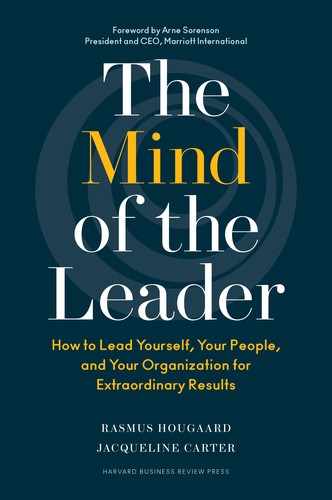Afterword
Leadership for a Hard Future
When asked about the importance of his legacy, Heineken CEO Jean-François van Boxmeer commented, “That’s a strange thing to ask and think about. I am just a short chapter in a long book. There have been many good CEOs before me and many will follow. My role is merely to prepare the organization for the next generations.” As leaders, as mighty and important as our roles may feel, we are just short chapters in a much bigger tale. But while we play this role, we have significant impact and power.
With the power of our leadership comes responsibility. Responsibility to the people and the societies we serve. They are the lives we have the power to influence, for better or worse. And ultimately, we can never blame our boss or shareholders. We carry the burden of the choices we make.
Leadership must be about serving for the greater good. We are all children of this planet. We all want to be happy. No one wants to suffer. Our most honorable responsibility as leaders is to help increase happiness and kindness and decrease unnecessary suffering. And to serve our societies in a way that they become a little better by means of our actions.
In this light, we as leaders must think and lead for the long term. We must have the courage to face the facts of the challenges lying ahead of us and be ready to make unpopular decisions when needed. And such decisions are much needed today.
In the book No Ordinary Disruption, the authors—directors of the McKinsey Global Institute—lay out findings from years of research and analysis on the changes taking place on our planet.1 Global economic power balances will shift dramatically, among other things making Africa a key player and leaving the United States behind. Technology will change in ways we currently can’t comprehend, escalating disruptive changes in business, geopolitics, international law, warfare, economics, and much more. The global population will grow and age, resulting in an unprecedented burden on the planet and working population. The way countries and companies are run will change foundationally. And finally, due to overpopulation and climate changes, we will see troubling scarcities of water, food, and other foundational resources for life. If just half of what McKinsey predicts happens, we are facing a hard future.
The same worrying messages come from researchers and organizations like the United Nations, OECD, and Intergovernmental Panel on Climate Change. The biggest and most dramatic challenge is undoubtedly climate change, which forever will impact our life on this precious planet. The seas will rise. The weather will become unpredictable. Some regions will dry out. Others will wash away. The natural balance of nature is being disturbed far beyond our reach of understanding and influence. Why are we not reacting?
Because our brains don’t perceive it.
Imagine this: You are standing on the highway and a truck is coming toward you at full speed. What do you do? Do you start contemplating whether the truck is real and how much it will hurt you to be hit? Or do you do everything you can to get out of the way?
Our brain is designed to help us survive by being tuned to immediate changes, such as an oncoming storm, or the roar of a truck coming full speed toward us. But the brain doesn’t sense the thinning of the ozone layer; the increased carbon dioxide levels in the air and oceans; and the very slow changes in climate, temperature, and rising seas. We have no neurological alarm system for slow change. When it comes to slow change, the normal fight-or-flight reaction of the amygdala draws a blank.
If the brain could react to slow change like it does to a fast-approaching truck, we would all be dogmatic about decreasing our individual environmental footprints and would take to the streets to make companies and governments do the same. But it doesn’t. And we are all blind to the fact that we may be killing the planet as a habitat for our children. We are indeed facing a hard future, and we don’t really see it coming.
As leaders today, we have a responsibility to face the hard challenges of the future. Even if the brains of the people we lead are not alarmed by the slow threats we face, we can’t neglect them. We have to stand up to face the future with clear minds. Because when the challenges hit, as slowly as they will, if we don’t stand together—clear minded, with selflessness and compassion—we will do what humans have always done: stick with our tribe and fight the others.
We can’t change the tsunami of challenges coming our way, but we can prepare ourselves. Prepare to stand together, rather than fight one another. We can start now by building more mindfulness, selflessness, and compassion in our organizations and societies, so that trust and social cohesion is in place when things become more challenging. That is the responsibility we all have, and especially those in positions of power. And it starts with our own minds.
Any conflict or war, at any time in history, has always originated in a mind or in a collection of minds. Conflicts do not come out of nowhere, and wars are not made of weapons but of minds that hold anger, attachment, or ignorance. In a rapidly changing world, with hard challenges coming our way, we need leaders with stable minds who can respond mindfully, with selfless confidence and wise compassion. It gives us great hope to see that leaders across the world and across industries and cultures are embracing these qualities and creating more social cohesion in their organizations. Thank you for your interest.
